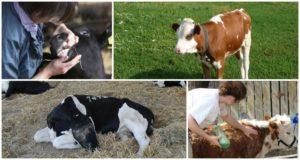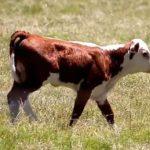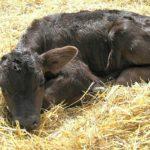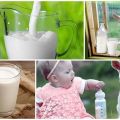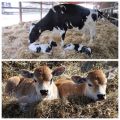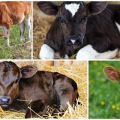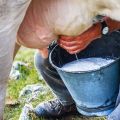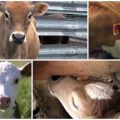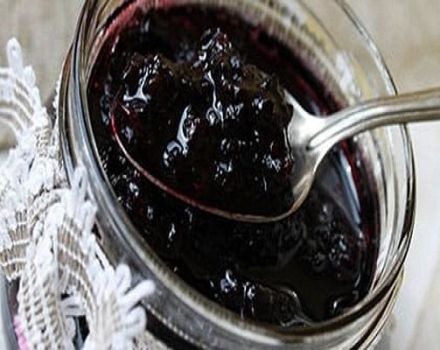What to do and how to feed a calf if it does not drink milk
The appearance of offspring on the farm is an important and exciting event for any owner. Little calves are active and very funny, but in order for a cow baby to develop well, grow into a healthy and productive animal, you need to take care of it from the first hours of life. What to do if the calf does not drink milk, why this happens, these questions concern many novice farmers.
The need to consume colostrum
The calf's gastrointestinal tract is not fully functional at birth. The baby does not have its own antibodies that help him fight infection and resist colds. That is why colostrum is vital for him, as well as for a human cub.
If the calf does not receive colostrum in the first hour after birth, immunity does not form, the pet will often get sick and may die. It is with colostrum that the baby receives the antibodies and minerals necessary to trigger the immune system. In the first 3 days after birth, the pet is given only colostrum, 5-6 times a day. Daily consumption is 6 liters. If the calf suckles well, it is left with the cow and feeds on colostrum on its own.
This method is called sucking. The calf is kept together with the cow for the first 1-1.5 days. Then the baby is transferred to a separate stall.
The animal may not have a sucking reflex, then the hostess needs to direct the baby to the udder, wet the finger with colostrum and let him lick it. For the first feeding, the animal consumes 1-1.5 liters of colostrum. If he cannot suck on his own, the valuable product is milked out, poured into a bottle with a nipple and given to the pet. In this case, it must be heated to + 35-37 ° C. Colostrum is warmed up by dipping a bottle in hot water; you cannot heat it on a stove or gas.
From day 2, the calf needs to be given, in addition to milk, warm boiled water, first 0.5-1 liter after feeding, then the amount is increased. From 10 days of age, the animal should have free access to clean boiled water. Boil and slightly heat the water for up to 3-4 weeks. After a month they drink water at room temperature.
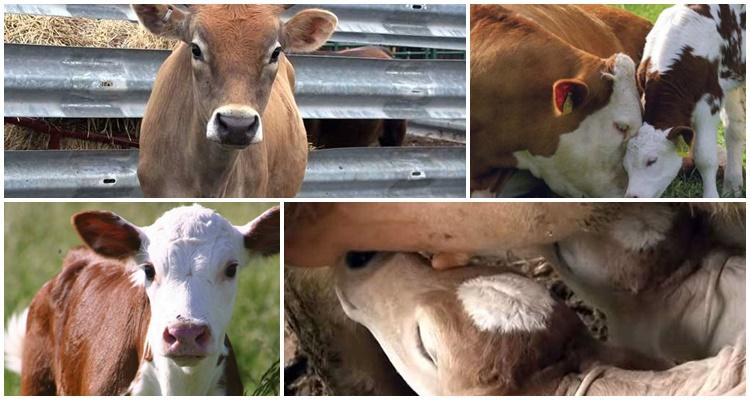
Why a calf refuses milk
Nature has laid the love of newborns for milk, if a small calf refuses to drink it, it is necessary to find a reason. Pathological or behavioral factors may be at play.
Pathological
It happens that after birth there is no sucking reflex in the calf, in this case the baby is drunk from the bottle, forcing him to suck.
A newborn calf may suffer from digestive problems, sometimes a stomach ache or diarrhea. In this case, the help of a veterinarian is required. The animal refuses to eat with the following diseases:
- dyspepsia;
- gastroenteritis;
- salmonellosis;
- pneumonia;
- colibacillosis.
Diseases are diagnosed by a veterinarian, he examines the baby and prescribes tests. You need to treat the calf right away, any pathologies develop very quickly in babies.
Behavioral
A healthy animal can refuse milk, this happens in cases where:
- offered cold drink;
- the calf does not suck well, he does not gorge himself and gets very tired;
- instead of milk, he is offered a substitute.
A pet at the age of 1 month is given only warm whole milk, without herbal additives. If the cow does not have milk, they give the baby a high-quality mixture prepared according to the manufacturer's instructions.
What can be replaced
If the cow has no or insufficient colostrum, a formula is prepared. Add 2-4 raw eggs, 1 teaspoon of fish oil and salt to a liter of whole cow's milk, mix everything and heat it in a container with hot water. The mixture is allowed to drink from a bottle, then it is supplemented with colostrum.
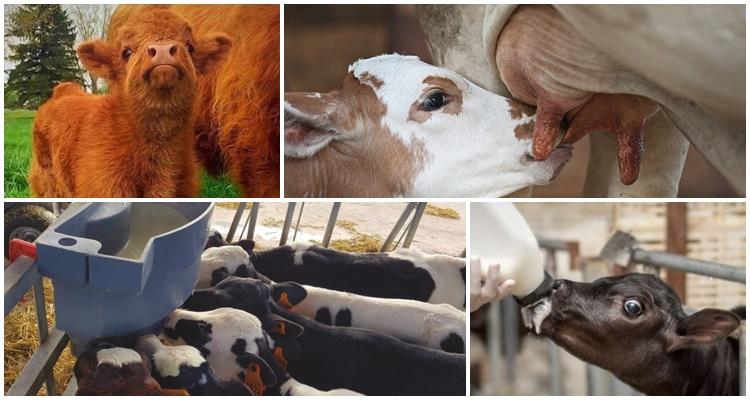
From 5 days they switch to milk. If there are several cows on the farm, milk from different animals is mixed and a calf is given, this strengthens the immunity of weakened animals.
If necessary, you can give your pet a whole milk substitute, which is, in fact, milk powder that is diluted before consumption. From that time on, he should have free access to water.
Transfer to artificial feeding
From the 3rd week, supplements are introduced into calf milk. Mix oat flour with warm water and add to milk. Boiled mashed potatoes are added to slightly diluted warm milk. After a month, the animal is gradually taught to hay. It is finely chopped and offered to the pet no more than 50 grams on the first day, gradually increasing the dose. The hay is moistened with salted water so that the animal does not prick and gets used to new food faster. One meal is substituted for wheat or oatmeal porridge. If the calf is born in summer, fresh, slightly dried grass is given instead of hay. The hay or grass is tied in small bundles and secured in the calf feeder.
Root crops are introduced into food: carrots, boiled apples, potatoes. After a month, the diet should contain: salt, about 5 grams per day, chalk - 10 grams. After consultation with the veterinarian, vitamin complexes are added.
The calf receives milk for up to 2.5-3 months. Its dose is reduced, replacing first 1, then 2 milk feedings, then leave only the evening drink. Whole milk is gradually replaced with skimmed milk (the return left after separation). Feed granular mixtures for calves are introduced into the diet.
Prevention
To grow a herd strong and healthy, you need to keep it in a clean, dry barn. It is better not to use sawdust as bedding. Milk bottles and buckets must be clean and washed after each feed. The nipples are additionally boiled in a 2% baking soda solution. The stall with the pet is cleaned and ventilated daily.
They enter the stall for calves in clean clothes, wash their hands before feeding. Warmed milk and water are given to babies. Root vegetables are washed before cooking, do not use rotten, moldy vegetables. Systematic veterinary examinations are carried out. Follow the vaccination schedule.
Healthy babies are active, they have a cold nose and dry tail, clean clear eyes. In case of lethargy of the animal, refusal of water and food, diarrhea, you should contact your veterinarian. If you treat the calf responsibly and lovingly, there are no problems with raising.
